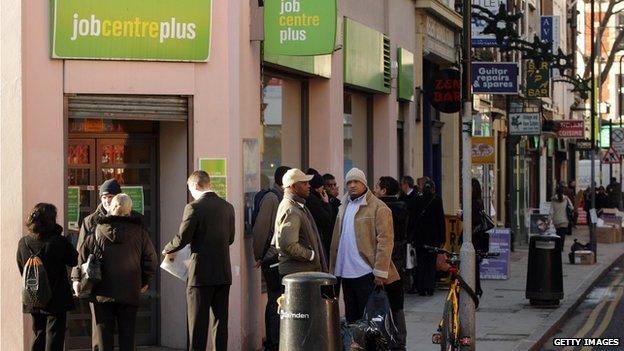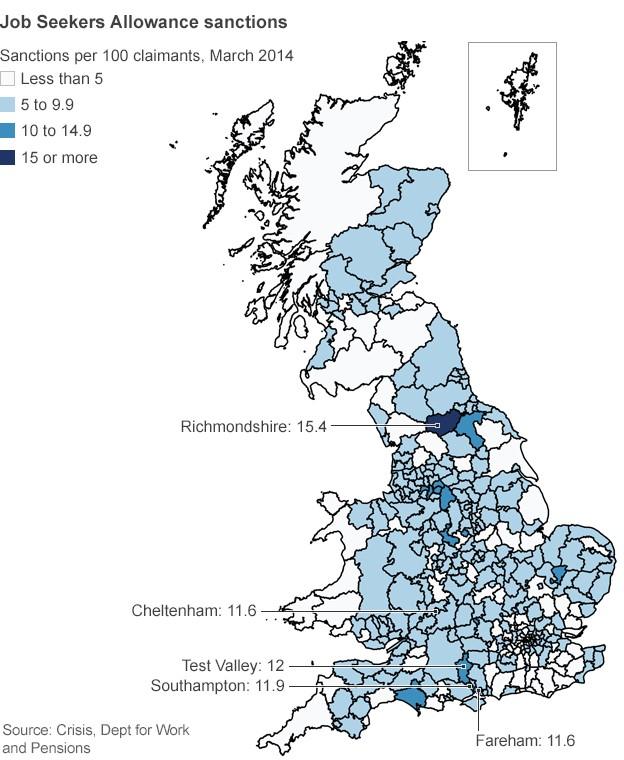Map of benefit sanctions shows cruelty, says homeless charity
- Published

Many benefit claimants are sanctioned unfairly every month, says the report
A benefits sanction map of the UK shows how claimants are being treated with cruelty, according to the homeless charity Crisis.
It said the map illustrates the "post code lottery" of sanctions - when claimants have their payments stopped.
And it warned that homeless people are being affected disproportionately.
However the government said that the number of people being sanctioned had actually fallen over the last year.
It said there were 170,000 fewer sanctions in the year to September 2014 than in the year before.
But in its report, Crisis claims the system is still deeply unfair.
It said sanctions rates varied between 15.4 per hundred claimants per month in Richmondshire, North Yorkshire, and 1.8 per hundred in the Western Isles.

'Punitive'
"Evidence is mounting of a punitive and deeply flawed regime," said Jon Sparkes, the chief executive of Crisis.
"Sanctions are cruel, and can leave people at severe risk of homelessness - cold, hungry and utterly destitute," he said.
Since April 2000, more than six million people have had benefits payments stopped, usually for failing to keep appointments, or demonstrating that they are otherwise not available for work.
The rules were tightened in October 2012, following the Welfare Reform Act.
Payments can be stopped for four weeks, or as much as three years, depending on how many times the rules are broken.
The sanctions also affect people claiming Employment Support Allowance (ESA).
The report - written for Crisis by Dr Kesia Reeve of Sheffield Hallam University - says that when sanction decisions are reviewed, half of them are overturned.
"The evidence at present is limited, but points clearly to a system that is more punitive than it is supportive," she said.
'Chaotic system'
But the government has always argued that benefit sanctions act as an incentive to help people find work.
"The truth is that every day Jobcentre Plus advisers are helping people into work, with a record number of people now in jobs," said a spokesperson for the Department of Work and Pensions.
"Sanctions are only used as a last resort for the tiny minority who refuse to take up the support which is on offer."
However earlier this month, Nick Bowles, a Conservative minister in both the Department of Business and the Department for Education, was reported to have called for a re-think on the way benefits sanctions are applied.
He told his local newspaper, the Grantham Journal, that sanctions should be looked at, external after the election, although he later withdrew the remarks.
Private companies
Crisis said that there was no correlation between the figures and bad behaviour by claimants.
However it did say that different policies by private sector companies delivering the Work Programme for the long-term unemployed might be a factor.
For example, sanctions rates in east London were much higher than in west London, reflecting different approaches by the service providers.
It said the overall picture was of a "chaotic system".